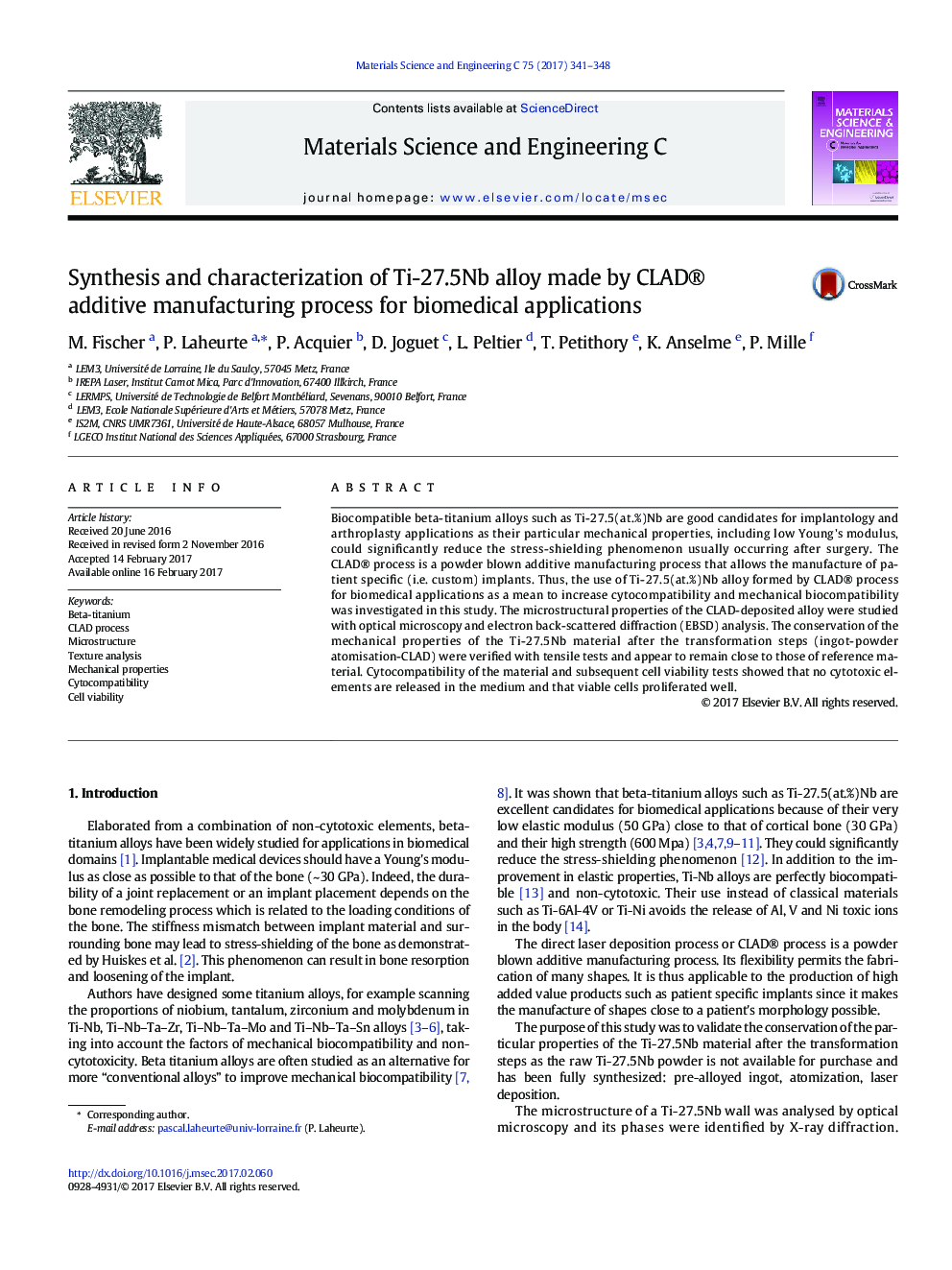| Article ID | Journal | Published Year | Pages | File Type |
|---|---|---|---|---|
| 5434831 | Materials Science and Engineering: C | 2017 | 8 Pages |
â¢Biomimetic implants can be provided from additive manufacturing with beta-titanium alloys.â¢We studied the properties of a Ti-Nb alloy elaborated with a laser deposition process.â¢TiNb alloy processed by LMD consists of only beta phase due to rapid cooling.â¢No preferential crystallographic texture is observed with EBSD analyses.â¢TiNb samples showed a combination of high strength and low Young's modulus.
Biocompatible beta-titanium alloys such as Ti-27.5(at.%)Nb are good candidates for implantology and arthroplasty applications as their particular mechanical properties, including low Young's modulus, could significantly reduce the stress-shielding phenomenon usually occurring after surgery. The CLAD® process is a powder blown additive manufacturing process that allows the manufacture of patient specific (i.e. custom) implants. Thus, the use of Ti-27.5(at.%)Nb alloy formed by CLAD® process for biomedical applications as a mean to increase cytocompatibility and mechanical biocompatibility was investigated in this study. The microstructural properties of the CLAD-deposited alloy were studied with optical microscopy and electron back-scattered diffraction (EBSD) analysis. The conservation of the mechanical properties of the Ti-27.5Nb material after the transformation steps (ingot-powder atomisation-CLAD) were verified with tensile tests and appear to remain close to those of reference material. Cytocompatibility of the material and subsequent cell viability tests showed that no cytotoxic elements are released in the medium and that viable cells proliferated well.
